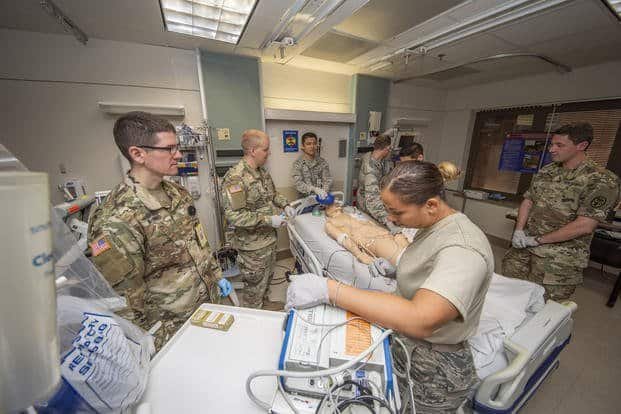
Making the transition from your military career back to the civilian world is a period of time most veterans find challenging. No matter what your military role was, you are bound to encounter a host of stressful situations.
While your first steps in reintegrating will center on re-establishing your role in your family and community, eventually you might seek gainful employment. For physicians who wish to enter the private sector, there are a few added layers to navigate. Let us take a look at some of the differences between being a military physician and working in the private sector.
Business Aspects
Unlike military hospitals and clinics, civilians are not limited to seeking care in one place. You will find in your job search that there is lots of competition in the private sector, which means if you want to have a successful practice, you will need to know how to advertise your business.
Another side of this is the salary and benefits. Military doctors are given paid vacation yearly and are automatically enrolled in a non-contributory retirement plan but civilian doctors are often paid a higher salary. You’ll want to keep these critical differences in mind when you transition.

Navigating Insurance
Another significant difference you will need to familiarize yourself with is health insurance. In the military, you are generally treating fellow members of the military. Their health insurance is provided by the US government so you don’t ever have to wonder if a procedure is covered. You are also not responsible for handling matters related to insurance in any fashion.
When you move to the private sector, everything must be authorized through the patient’s health insurance. This can be discouraging as things take longer to approve and manage and you might find yourself spending more time on pre-approvals than actually providing care. You might also find yourself in a situation where the patient’s insurance does not cover the services you are providing.
Accounting Practices
As mentioned earlier, insurance is largely removed from your role as a military physician but when you transition to private practice, the billing and accounting practices fall into your realm of responsibility. It will be beneficial for you to learn some basic accounting skills and invest in an accounting program or be prepared to hire someone to take care of authorizations and billing for you. Don’t forget, you will likely need to collect copays as well so you will want to make sure you have a working knowledge of the insurance policies your practice accepts
Change In Environment
Military doctors often work in teams and work fewer hours than doctors in the private sector. In civilian clinics, staff members have varying schedules which leads to more isolation and less camaraderie. Private practice also moves at a faster pace and you might find it challenging to keep up when you add that layer of isolation. Burnout can occur in either sector but military clinics tend to be more predictable than private practice and in private practice, you could often find yourself working alone.
Marketing Matters
Unless you decide to work for a hospital or academic setting, you will need to know how to market your practice. Remember, civilians have a choice in who they see. That choice is limited by their insurance but, nonetheless, there is lots of competition among physicians. You will need to find a way to stand out. There are lots of tools to get your name out there and you’ll want to familiarize yourself with them. Social media, medical websites, word of mouth, or marketing campaigns are all valuable strategies to help attract new patients.
Know Your Strengths
Not every military doctor is limited to practicing on base. At some point, you might get deployed. Deployment is likely a stressful time but you might find that you are presented with unique opportunities to hone your craft. These skills are valuable in the private sector and they will offer you insight into areas that civilian doctors aren’t generally exposed to. Understanding other veterans will also work to your advantage. You’ll have a better understanding of one of the most commonly seen ailments among veterans and be able to offer them empathy and a higher caliber of care as a result.
There are several areas that will change when shifting from practicing medicine in the military to the private sector. When you make this transition, your patient care philosophy might not change much but business practices look vastly different. You can prepare yourself for success in this transition by learning about insurance matters, complex accounting components, and general environmental differences between the two.
ATTENTION READERS
We See The World From All Sides and Want YOU To Be Fully InformedIn fact, intentional disinformation is a disgraceful scourge in media today. So to assuage any possible errant incorrect information posted herein, we strongly encourage you to seek corroboration from other non-VT sources before forming an educated opinion.
About VT - Policies & Disclosures - Comment Policy



